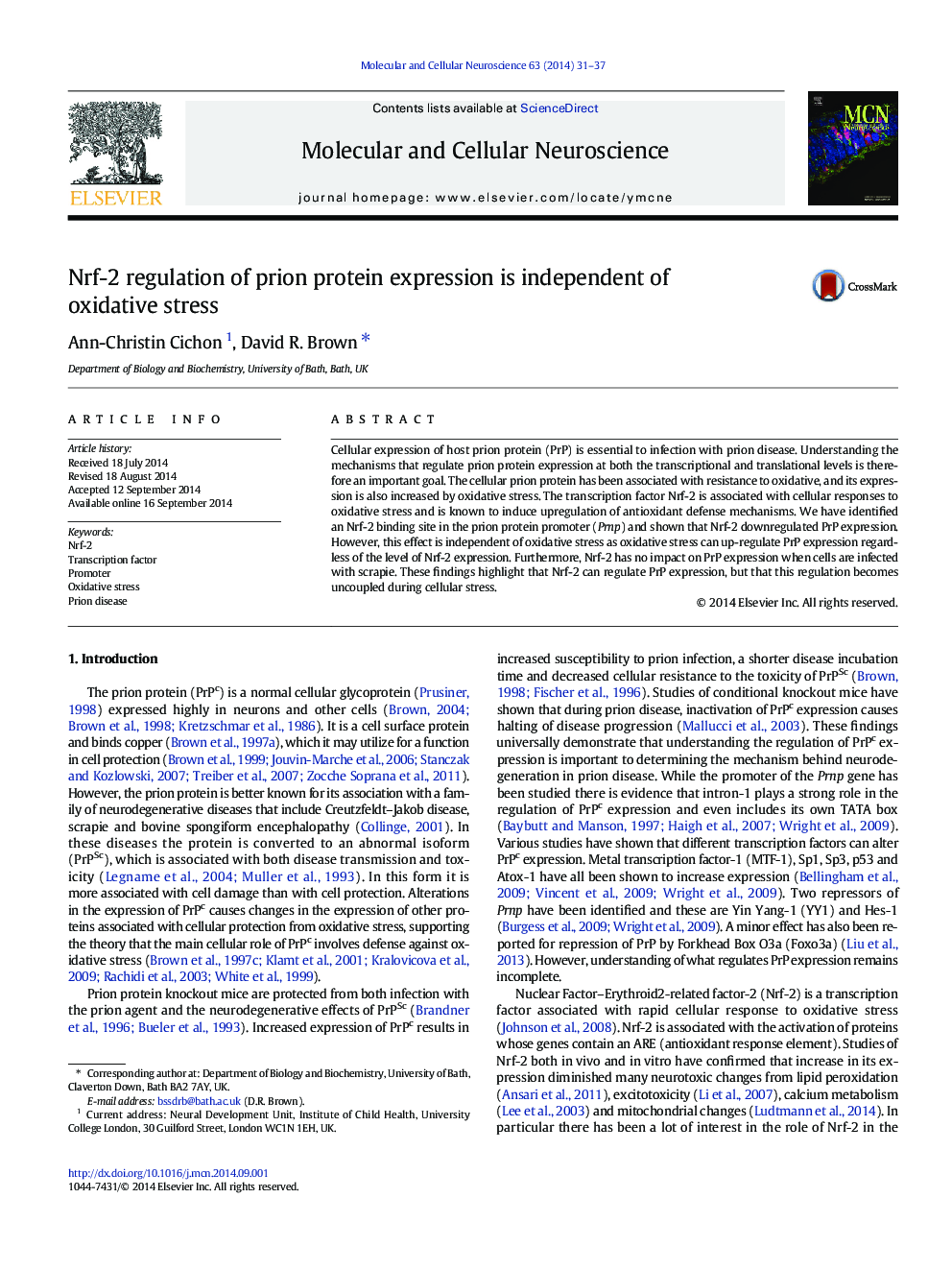| Article ID | Journal | Published Year | Pages | File Type |
|---|---|---|---|---|
| 2198456 | Molecular and Cellular Neuroscience | 2014 | 7 Pages |
•We determined that Nrf-2 represses prion protein expression in cells.•We have shown that Nrf-2 binds to the promoter of the prion protein.•Under oxidative stress the prion protein expression is increased.•Nrf-2 does not decrease PrP expression under oxidative stress or prion infection.
Cellular expression of host prion protein (PrP) is essential to infection with prion disease. Understanding the mechanisms that regulate prion protein expression at both the transcriptional and translational levels is therefore an important goal. The cellular prion protein has been associated with resistance to oxidative, and its expression is also increased by oxidative stress. The transcription factor Nrf-2 is associated with cellular responses to oxidative stress and is known to induce upregulation of antioxidant defense mechanisms. We have identified an Nrf-2 binding site in the prion protein promoter (Prnp) and shown that Nrf-2 downregulated PrP expression. However, this effect is independent of oxidative stress as oxidative stress can up-regulate PrP expression regardless of the level of Nrf-2 expression. Furthermore, Nrf-2 has no impact on PrP expression when cells are infected with scrapie. These findings highlight that Nrf-2 can regulate PrP expression, but that this regulation becomes uncoupled during cellular stress.
